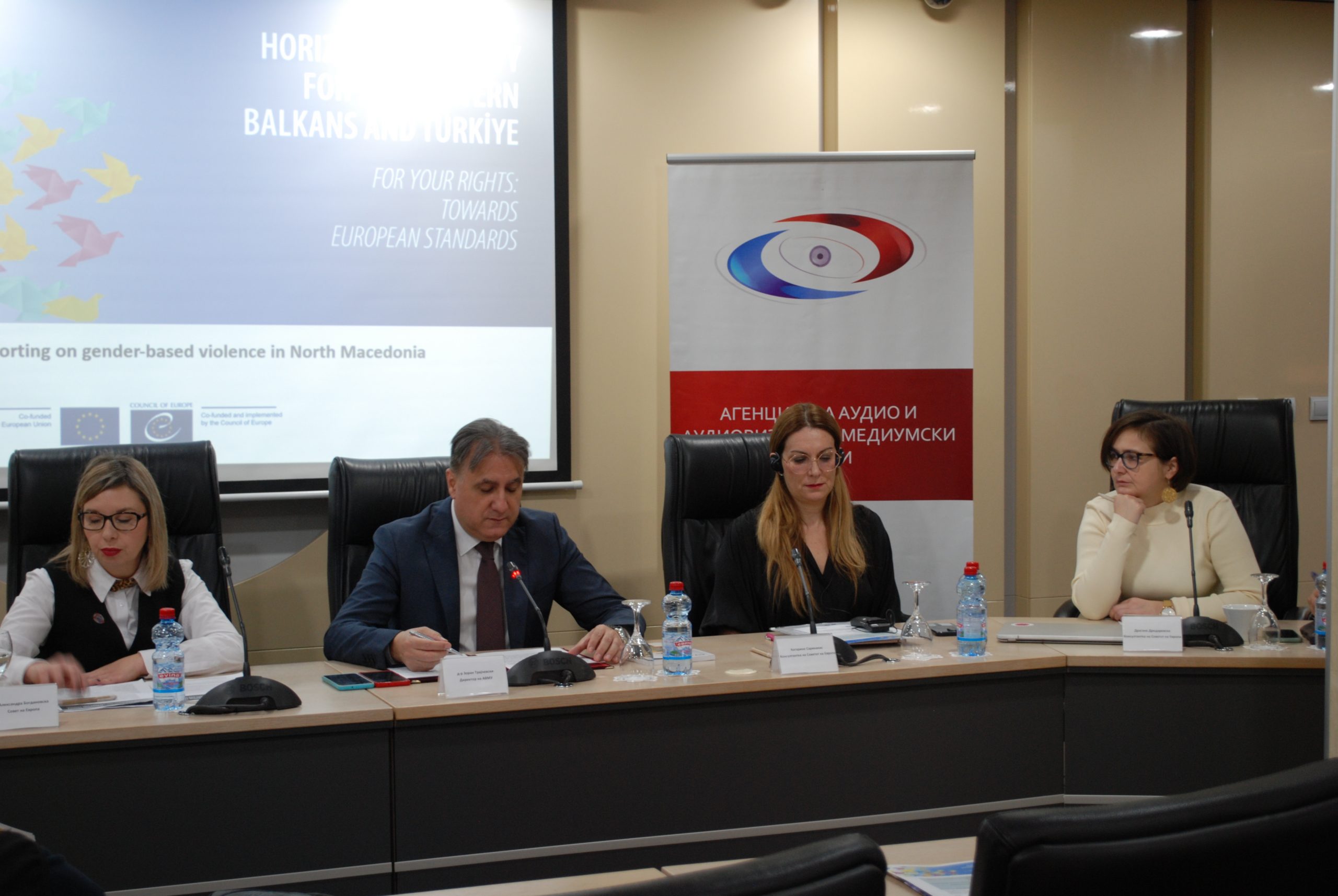Skopje, 5 December 2024 – A workshop on “Enhancing Media Reporting on Gender-Based Violence” was held yesterday, organized by the Council of Europe’s Programme Office in Skopje and the Agency for Audio and Audiovisual Media Services. The workshop was intended for media workers from the local radio and television stations and was attended by other professionals in the field as well.
“Gender stereotypes are a complex social phenomenon that hinder gender equality, reinforce harmful discourses in the media and in society as a whole, and are also a cause for gender-based violence. Media outlets and media professionals play a particularly important role and responsibility in raising awareness of the gender issues and in promoting gender equality,” AVMU Director Zoran Trajchevski, PhD, emphasized at the beginning of the event.
Aleksandra Bogdanovska of the Council of Europe highlighted the importance of the project for “Protection of the Freedom of Expression and Freedom of the Media in North Macedonia (PRO-FREX)” under which this workshop was carried out, and which enables the beneficiary institutions and civil society organizations in the country to advance in fulfilling their reform agendas in the area of freedom of expression and freedom of the media, in accordance with the European standards.
Ana Nushkova-Avramovska, legal advisor at the National Network to End Violence against Women and Domestic Violence, spoke about the relevant national legislation and the system for protecting victims of gender-based violence, while media expert Marina Tuneva, PhD, presented to the attendees the Handbook for Gender-Sensitive Reporting in the Media, which aims to assist media in their efforts to report professionally in a gender-sensitive manner, and thus to draw attention to the problem of gender-based violence.
Dragana Drndarevska, member of the Commission for Preventing and Protection against Discrimination, spoke about the intersectoral approach to addressing gender-based violence, then about the importance of journalistic reporting and the manner of framing topics related to domestic and gender-based violence, gender equality and the LGBTI community, as well as about the need to take into account the intersectionality of discrimination, i.e. the situations in which a person is being discriminated against on multiple grounds.
The Agency’s Guide for monitoring the implementation of the reporting standards in cases of gender-based violence in the media was presented by its author, Prof. Dr. Katharine Sarikakis of the University of Vienna. The document is designed to provide clear standards and criteria aimed at assessing given content when reporting on gender-based violence, which can also serve as a roadmap for the media to resolve dilemmas in their reporting.
While moderating the event, Emilija Petreska-Kamenjarova, M.A., of the AVMU reminded that media play an important role in shaping society’s viewpoints and values and offer enormous potential as instruments for social change.
The presentations of this Workshop are available at the following links:
Anna NUSHKOVA-AVRAMOSKA, Legal Advisor at the National Network to End Violence against Women and Domestic Violence
Handbook for Gender-Sensitive Reporting in the Media
Marina Tuneva, PH.D., Council of Europe Consultant
Presentation of the Inter-Sectoral Approach to Tackling Gender-Based Violence
Dragana DRNDAREVSKA, Member of the Commission for Preventing and Protection against Discrimination
Katharine SARIKAKIS, Professor at the University of Vienna

